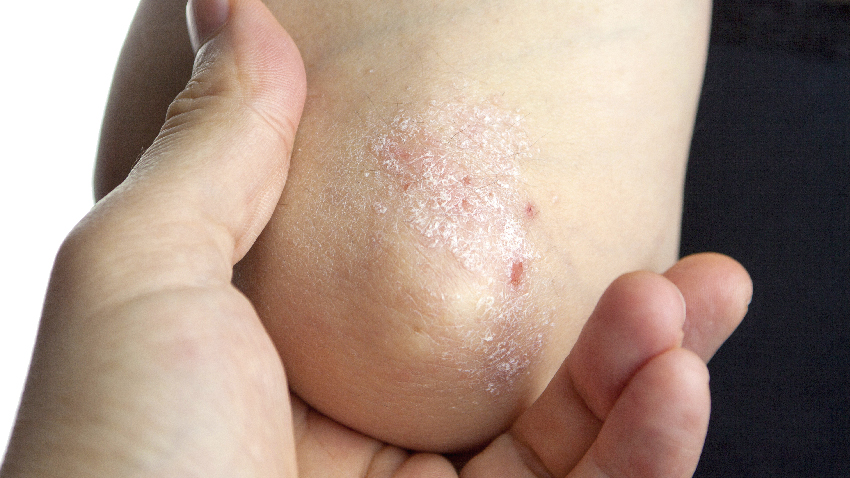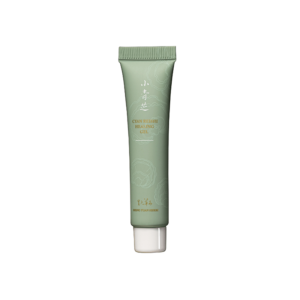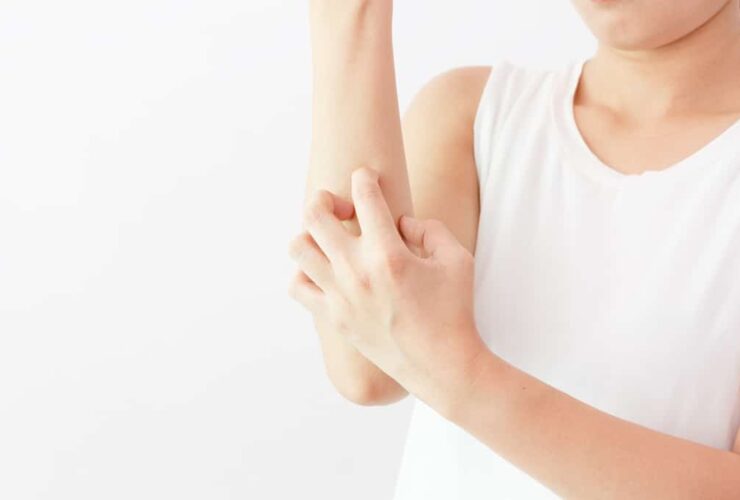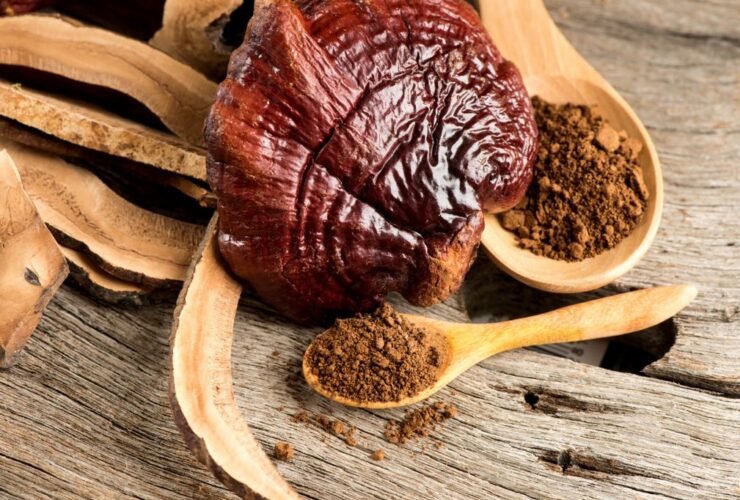
What is Psoriasis? Avoiding Skin Conditions from Psoriasis by Understanding the Four Major Causes and Choosing the Appropriate Treatments

Have you ever experienced this situation? During seasonal transitions or periods of high stress, your skin starts acting up, causing itching, peeling, redness, and other discomforts. Does it bother you and affect your daily life?
When we notice patches of redness and excessive skin flakes, it is likely a symptom of psoriasis. Psoriasis is a chronic and recurring inflammatory skin disease, also known as plaque psoriasis or psoriasis vulgaris. Since the symptoms of psoriasis and eczema can be similar, it can be difficult to distinguish between the two.
Today, we want to help you understand the causes of psoriasis, the different types of psoriasis, and recommend skincare methods and topical creams to effectively manage psoriasis and regain comfort in your daily life.
Psoriasis Also Known as Plaque Psoriasis or Psoriasis Vulgaris. Understanding the Four Major Causes for Psoriasis.
Signs of psoriasis include itchy and swollen skin, red patches, and excessive scaling. As a result, some people mistakenly believe that psoriasis is contagious. However, psoriasis is not infectious. Additionally, less obvious symptoms of psoriasis can sometimes be confused with other skin conditions such as atopic dermatitis or eczema.
When dealing with the skin troubles caused by psoriasis, it is important to seek medical assistance as early as possible and use topical creams to alleviate discomfort. Furthermore, it is essential to understand the potential causes of psoriasis.
1. Genetics
If one or both parents have psoriasis, there is a higher probability that their children will develop psoriasis as well. However, it is not a guarantee, and the likelihood can vary based on individual factors and constitution.
2. Stress or Disruption to Endocrine System
Individuals who are exposed to high-stress environments for prolonged periods are more prone to triggering or worsening psoriasis. Additionally, women going through puberty or menopause have a higher likelihood of developing psoriasis.
3. Infections or Wounds
When the skin experiences external injuries such as cuts, sunburns, insect bites, etc., it can potentially trigger the onset of psoriasis symptoms. It is worth noting that bacterial or viral infections are also among the factors that can induce psoriasis.
4. Habitual Smoking or Drinking
Individuals who have a habit of smoking or alcohol consumption are more prone to triggering underlying psoriasis conditions. If psoriasis patients continue to smoke and have irregular sleep patterns, it can potentially worsen the severity of their psoriasis symptoms.
Is It Psoriasis or Eczema? Understanding Common Types of Psoriasis and Common Sites of Occurrence
Psoriasis is characterized by distinct clinical features of red patches on the skin surface and scaling in affected areas, hence it is also known as Silver Scales Disease.
The common sites of occurrence for psoriasis are similar to those of eczema. Both conditions tend to affect the face, elbows, and knees. However, psoriasis is more commonly seen on the scalp, limbs, and nails. Among individuals with psoriasis, it can be further classified into the following four types:
1. Plaque Psoriasis
The most common manifestation of psoriasis, accounting for approximately 70-80% of psoriasis patients, is plaque psoriasis. It is characterized by the presence of distinct red patches with well-defined borders, and these patches are covered with white scales that result in scaling of the skin.
2. Guttate Psoriasis
This type of psoriasis is more common in children. The lesions are smaller in size, typically ranging from 0.1 to 1.5 centimeters. Guttate psoriasis is often triggered by a streptococcal infection in the respiratory tract and tends to appear on the upper parts of the limbs.
3. Pustular Psoriasis
The symptoms of pustular psoriasis include red patches on the skin with yellow sterile pustules on top. It commonly occurs on the palms of the hands and soles of the feet. Pustular psoriasis can be categorized into two types: generalized and localized.
4. Erythrodermic Psoriasis
Compared to the previous three types, erythrodermic psoriasis is less common but tends to affect the entire body, covering a large area of the skin. It gives the patient’s skin a sunburned appearance with widespread redness.
How to Treat Psoriasis? Topical Creams, Oral Medicine and Phototherapy
Although the symptoms of psoriasis are difficult to cure completely, and the underlying causes are often unknown, they can significantly affect our quality of life. However, through medical evaluation and examination, we can determine the appropriate therapy that suits our individual condition to help alleviate the discomfort caused by the symptoms.
1. Topical Creams or Ointments
If the symptoms of psoriasis are mild and limited in scope, you can choose to use topical ointments to alleviate the symptoms. Common topical ointments for psoriasis include corticosteroids and other medications.
2. Oral Medications
For patients with more severe psoriasis, it is recommended to consider oral medications for treatment after consultation with a physician.
3. Phototherapy
If the condition is not well-controlled with topical creams or oral medications, following the guidance and recommendations of a physician, phototherapy (also known as light therapy) can be pursued to help improve the condition.
Due to the similarity of symptoms between psoriasis and other common skin conditions such as eczema or atopic dermatitis, it is important to exercise caution in the diagnosis. Seeking timely medical assistance is recommended to accurately diagnose the condition and determine the appropriate treatment method to alleviate discomfort as soon as possible.
Making Lifestyle and Daily Routine Adjustments to Help Manage Challenges Posed by Psoriasis.
To effectively address the challenges posed by psoriasis, in addition to the mentioned approaches such as oral medications and topical creams, we can also adopt a holistic approach by adjusting lifestyle habits and improving our daily routines. This can help reduce the likelihood of psoriasis flare-ups.
Managing Stress
Psoriasis patients should avoid prolonged periods of high stress, excessive fatigue, and staying up late. It is recommended to find methods that help alleviate stress and maintain a positive mindset to avoid accumulating excessive physical and mental stress.
Balanced Diets
Maintaining a balanced diet and consuming a variety of high-fiber fruits and vegetables is ultimately the fundamental way to take care of your body. Avoiding spicy and irritating foods and developing a habit of drinking plenty of water is also important in order to meet your daily nutritional needs.
Avoiding Scratching
Due to the tendency of bacteria to accumulate on our nails, it is recommended to avoid scratching the affected areas of psoriasis directly. Instead, it is advisable to gently pat or apply a cold compress to help alleviate the itching sensation.
Cyan Reishi Advanced Repair Gel from Sheng Yuan Herbs Can Handle Skin Issues from Psoriasis with Ease
Based on the information provided above, you now should have a better understanding of the causes, types, and recommended skin care methods for psoriasis. When faced with unpredictable skin issues, Cyan Reishi Advanced Repair Gel from Sheng Yuan Herbs is your long-term ally in fighting these issues and helping you protect your skin and regain your confidence without leaving any traces.
Following the principle of “Wellness through Circle of Life” and realizing that vision into everyday life, Sheng Yuan Herbs created the versatile skin care product Cyan Reishi Advanced Repair Gel with the gentle ingredient “Cyan Reishi” and the GMI protein extracted from “ganoderma microsporum”. It provides soothing and calming effects for the discomfort caused by psoriasis on the skin, and is safe to use for pregnant women and children.
In addition, Cyan Reishi Advanced Gel has a gel-like texture that not only enhances skin absorption but also provides a refreshing and comfortable feel. It creates a comprehensive protective barrier for the skin, soothing the redness and scaling reactions caused by psoriasis in various body areas. It helps reduce the frequency of skin symptoms and gradually restores healthy skin.
Having a better understanding of psoriasis and learning about its other names such as “Silver Scales Disease”, you can now avoid the misconception that psoriasis is a contagious disease. When dealing with skin issues, it is important not only to identify the triggering factors promptly but also to actively utilize treatments such as oral medications and ointments. Additionally, maintaining proper daily skincare routines and adjusting your lifestyle can help prevent psoriasis from recurring, allowing your skin condition and overall quality of life to improve.
-
 Cyan Reishi Healing Gel$8.99
Cyan Reishi Healing Gel$8.99





